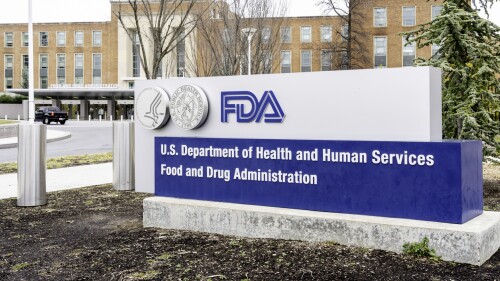News
The partnership will focus on Crescent’s PD-1/VEGF inhibitor CR-001 and Kelun-Biotech’s SKB105, both of which the companies plan to push into Phase I/II development for solid tumors early next year.
FEATURED STORIES
While the TrumpRx deals only cover Lilly and Novo for now, the agreements are good for any cardiometabolic biotechs waiting in the wings, according to a new 2026 preview report from PitchBook.
Venture capital flow to women-founded companies has stabilized in the post-pandemic environment. BioSpace looks back at five companies that have nabbed the most over the past two decades.
After covering the Alzheimer’s space through every high and low, BioSpace’s Annalee Armstrong welcomes back Roche for the 2026 Alzheimer’s Renaissance.
Job Trends
Genentech is letting go of 118 employees in South San Francisco. The news comes about two months after the biotech ended a partnership with Adaptive Biotechnologies.
FROM OUR EDITORS
Read our takes on the biggest stories happening in the industry.
After Emma Walmsley steps down as GSK CEO in January, Vertex Pharma’s Reshma Kewalramani will be the sole female CEO at a top-20 pharma company. Still, there are many prominent women in pharma that could someday break through again.
THE LATEST
Analysts had noted “unease” from investors regarding the state of the Phase III ADEPT-2 trial, with BMS at one point telling Leerink Partners that the reopening of enrollment would be a “significant development.”
The Phase III, open-label extension study suggests EPX-100 has a “positive” risk/benefit profile for the treatment of Dravet syndrome, analysts at H.C. Wainwright & Co. said Tuesday.
For certain monospecific antibodies, three-month toxicology studies plus other supportive evidence will suffice, eliminating the need for six-month testing.
Experts unpack the implications of CBER Director Vinay Prasad’s claim that COVID vaccines have caused 10+ child deaths; the 2025 Clinical Trials on Alzheimer’s Disease conference continues following two disappointing readouts; and Novo Nordisk’s amycretin yields promising weight loss results.
Early decisions about manufacturing and supply chains could prove costly as a company reaches the commercial stage.
Newly appointed Center for Drug Evaluation and Research director Richard Pazdur has filed retirement papers with the agency—three weeks after accepting the role—amid clashes with Commissioner Marty Makary over certain FDA programs.
With no evidence to support the claim that 10 children died due to COVID-19 vaccines, experts unpack the impact of CBER chief Vinay Prasad’s leaked vaccine memo.
While Imvax’s autologous immunotherapy IGV-001 missed the primary endpoint of progression-free survival in a Phase IIb trial, the company will request a meeting with the FDA to discuss next steps for “synergistic” treatment.
Trontinemab lowered amyloid levels below the threshold of positivity in 92% of treated patients.
This week’s meeting of the Advisory Committee on Immunization Practices will be led by Kirk Milhoan, a physician and pastor who recently claimed that COVID-19 vaccines contained a contamination that causes cancer.






















